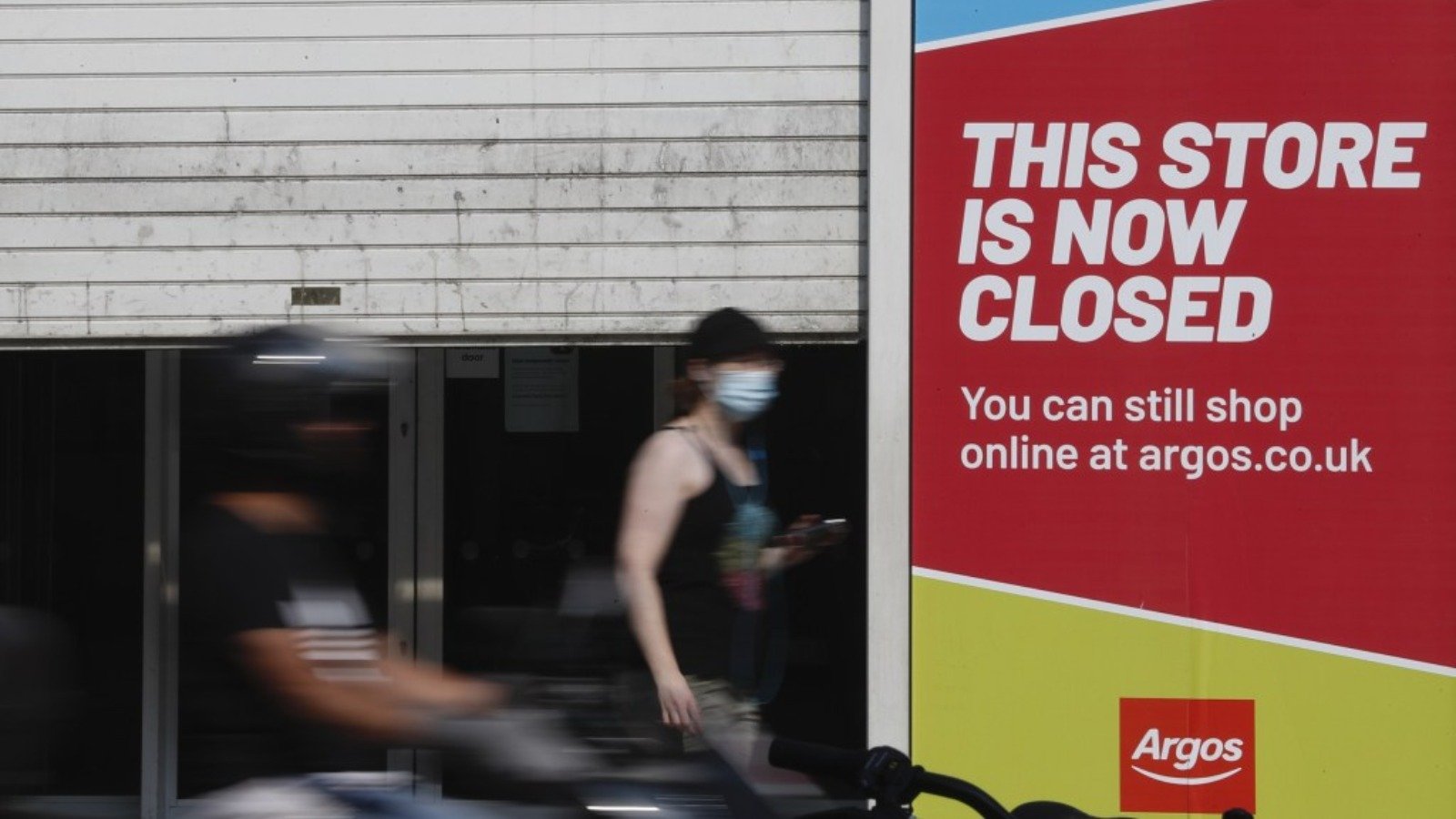LONDON (AP) — Britain has suffered the deepest recession among the world’s top economies this year, shrinking by a fifth in the second quarter alone when much of the economy was mothballed as part of efforts to contain the coronavirus pandemic.
The 20.4% quarterly drop is the worst since records began in 1955, the Office for National Statistics said, and means Britain is in recession.
While many of the lockdown restrictions have since been eased, the country faces a tough time in coming months, with unemployment likely to spike as the government phases out a support program that has effectively kept nearly 10 million workers on company payrolls.
Britain’s recession is deeper than those recorded by comparable economies in Europe, notably Germany, France and Italy, or by the United States. Canada and Japan, the remaining members of the Group of Seven leading industrial nations, have yet to publish their second-quarter numbers but no economist thinks they will be as bad as the U.K.’s.
Kallum Pickering, senior economist at Berenberg Bank, said the main reason why the U.K. economy has fared worse is that the lockdown was introduced at “a later stage” in the virus outbreak, particularly when compared with others in Europe.
By the time Prime Minister Boris Johnson introduced the lockdown on March 23, the U.K. had “a bigger first wave” than could have otherwise been the case, meaning restrictions had to go on for longer. Shops in Germany, for example, reopened on May 6 compared with June 15 in England.
“I’ve said before that hard times were ahead, and today’s figures confirm that hard times are here,” said Treasury chief Rishi Sunak. “Hundreds of thousands of people have already lost their jobs, and sadly in the coming months many more will.”
The U.K. is currently in a transition period whereby it remains part of the EU’s tariff-free arrangements until the end of the year. The future economic relationship has yet to be agreed upon, meaning tariffs could be imposed on traded goods between the two sides come the start of next year — a development that most economists think would further hobble an economy struggling to recover from the pandemic.❐
























